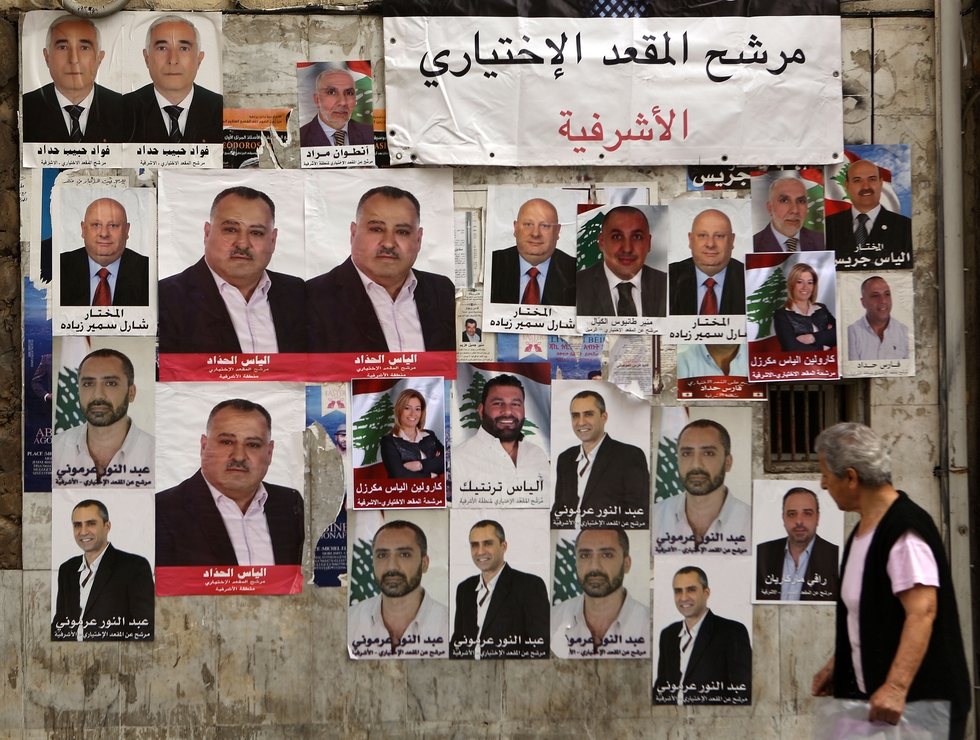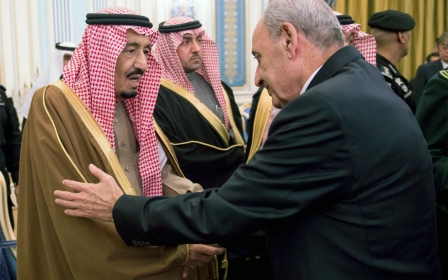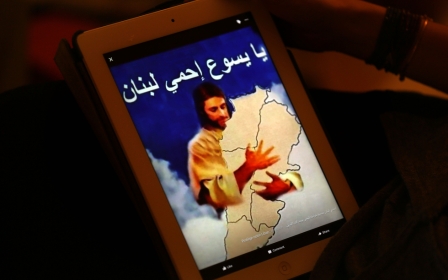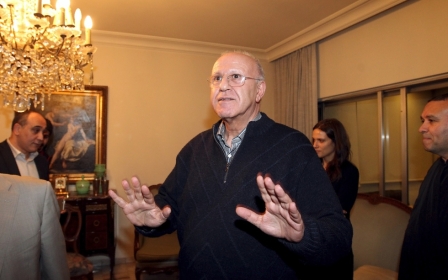All eyes on Beirut's ballots

Securing the loans direly needed to keep the Lebanese economy afloat required a bold decision earlier this year by the Lebanese government to hold municipal elections on time.
The decision, which came despite the fact that parliamentary elections have been delayed for over two years due to alleged security threats, has handed a rare opportunity to a cunning group of non-sectarian technocrats and professionals.
Called Beirut Madinati, which translates as Beirut is my city, the volunteer-led campaign has a complete list of municipal candidates consisting of urban planners, transportation engineers, waste management experts, economists, activists, and artists.
The group now has a historic chance of breaking a sectarian grip on the everyday lives of citizens and residents in the capital.
Indeed, regardless of what comes out of Sunday’s wider election results across the country, Beirut’s ballots will tell a different story.
Bearing the brunt of a corrupt sectarian system that has been installed for decades, Beirut is at the forefront of a transnational constellation where young, educated, and urban Arab communities are tirelessly and organically reconfiguring their relationship with the institutions that govern their lives, and, in doing so, resisting a powerful and structural sectarianisation trend.
From a narrative of dissent to a narrative of alternatives
To prepare for the elections, the technocratic group has managed to secure a whopping $200,000 in less than two months of crowdfunding. This is not the first movement in Lebanon that has funded its mobilisation efforts through crowdsourcing. Last summer, several civil society groups formed the "YouStink" movement, in response to “the government’s pestering corruption and inability to solve the ongoing rubbish crisis in a sustainable way”.
Despite attracting thousands of Lebanese citizens and organising one of the largest non-sectarian protests in the country’s recent history, the sectarian elite managed to exhaust the YouStink momentum and pass an unsustainable and environmentally catastrophic solution for the tonnes of rubbish that piled up in the capital.
But there is something fundamentally different in Beirut Madinati. The electoral campaign presents a uniquely mature and realistic alternative which builds on the YouStink experience, among other previous anti-corruption initiatives and movements that had a similarly disappointing fate.
Yet, this campaign is the most serious civil challenge to the sectarian system to date because it confronts sectarian parties not through a temporal narrative of dissent, but, instead, through a narrative of pragmatic, credible alternatives for a particularly resourceful institution: Beirut’s municipality.
The capital’s municipality does not provide financial reports to the Ministry of Interior. So it is difficult to know how wealthy it is. However, in his interviews, the president of the municipality, Bilal Hamad, boasts about over $1 billion in reserves and around a $250,000 in yearly revenues.
Fighting for resources
The municipality of Beirut is rich in resources, and a non-sectarian strategy within the municipality can use these to disrupt the sectarian status quo and draw the lives of the residents away from corrupt patrimonial governance.
If Beirut Madinati miraculously wins the elections on Sunday, it means that a non-sectarian group will have decision-making powers in the capital as well as hundreds of millions of dollars to implement innovative and sustainable urban planning after decades of draconian neoliberal policies that caused severe and, in some aspects, irreversible damage to Lebanon’s heritage, public spaces, infrastructure, and, most recently, the environment.
Even if the electoral battle is lost, Beirut Madinati has already won on many other less tangible fronts. Most significantly, the campaign proved that the non-sectarian civil society in Lebanon is maturing in narrative and action. Instead of reactionary dissent, the highly educated urban middle class that is predominantly harmed by sectarian clientelism is, from now on, fighting with the sectarian elite on what matters most: resources.
While doing so, the Lebanese youth are reconfiguring their relationship with their own system and discovering the extent to which, and the ways in which, they can be represented, while sectarian parties vindicate their control over the country’s resources.
From Beirut to Baghdad
Last week, anti-government protestors climbed over the walls surrounding Baghdad’s fortified Green Zone, which has been a restricted area for Iraqis since the US occupation, and stormed the Iraqi parliament after months of protests in Baghdad against sectarianism and corruption, fuelled and sponsored by the influential political leader and Shia cleric Muqtafa al-Sadr who led a violent resistance against US troops in Iraq.
Anti-corruption civil movements are emerging and re-emerging across the Arab region, particularly among societies that have already lived under undemocratic consociational systems after bloody, sectarian civil wars, as is the case in Lebanon and Iraq.
The increasingly corrupt regimes across the region are inevitably facing innovative and organic forms of resistance by the highly educated and under-employed youth.
Beirut Madinati is not detached from those transnational attempts to answer the hopeful question of Arab post-authoritarianism: how will the Arab peoples democratise their institutions, considering the economic, social and geopolitical hindrances?
- Ibrahim Halawi is a London-based researcher and a PhD candidate in Politics at Royal Holloway University of London. His research focuses on the theoretical relationship between revolution and counterrevolution, with an emphasis on the Arab uprisings. Also, he co-founded a secular student movement and student-run newspaper in Lebanon. His twitter handle is: @ibrahimhalawi
The views expressed in this article belong to the author and do not necessarily reflect the editorial policy of Middle East Eye.
Photo: A Lebanese woman walks past posters of candidates for the upcoming Beirut municipal elections on 4 May, 2016 (AFP).
New MEE newsletter: Jerusalem Dispatch
Sign up to get the latest insights and analysis on Israel-Palestine, alongside Turkey Unpacked and other MEE newsletters
Middle East Eye delivers independent and unrivalled coverage and analysis of the Middle East, North Africa and beyond. To learn more about republishing this content and the associated fees, please fill out this form. More about MEE can be found here.





